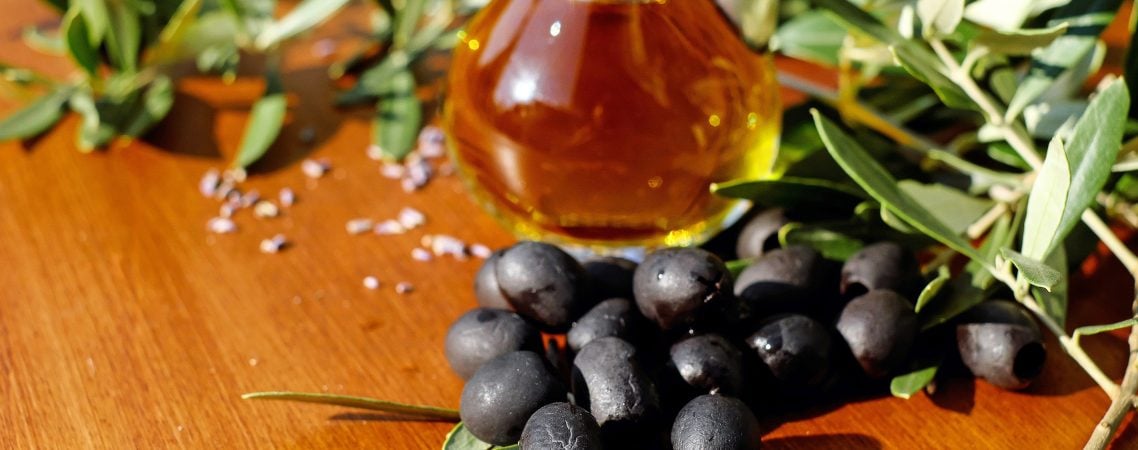
What is an Olive and its Skin Benefits
What is an olive (Οlea Εuropaea)
Ελιά – Olive: The blessed tree of Greece in mythology, history, science and its nutritional value.
History and Mythology
What is an Olive Tree ?. Olive tree worshiped by our ancient ancestors. According to Greek-Mythology, Athena donated to the Athenians the first olive tree in the world. The tree flourish and grow where Athena, struck her spear, during the struggle between the gods, on who will be the protector of Athens.
The Mycenaeans offered olive oil to the Gods, while Homer called the olive “the gold liquid of healthy diet.” Aristotle regarded olive cultivation as a science, while Hippocrates used olive oil remedies as a medicine.
According to mythology, Hercules planted an olive tree in the temple of Hera in ancient Olympia, after completing its twelve feats. It was known as the “Οlive sun dried leaves”, from which the Crown (Kooten) was handed to excelled athletes. This Crown was of a great value and it was of greatest honor to wear it.
In addition, olive oil has been offered to the winners in Panathenaic amphorae. A source of inspiration also today, as the olive wreath was chosen as a symbol of the 2004 Olympics.
Scientific and Research Facts about Olives and Olive Oil
Olives and Olive oil in general, is in the epicenter of the Mediterranean diet. One of the most popular and proven healthy diets in the world. Olives contain large amounts of monounsaturated fat (75%) and antioxidants. This in turn, act to protect us against the so-called oxidative stress, which causes aging signs.
Monounsaturated fats are considered “good fat” and a wide range of studies have shown that they are related to the reduction of cardiovascular diseases. It is acceptable that olives and olive oil reduce the levels of “bad cholesterol” and triglycerides. Furthermore, regular consumption of olives and Olive Oil helps reducing blood pressure.
Many studies have shown that olives contain substances (such as squalene and lignans) that are very likely to protect our body from cancer. The British Health System (NHS) recommends a balanced Mediterranean diet. A Mediterranean diet is rich in fruit, vegetables, fish and olive oil. Patients with Type 2 Diabetes are benefits the most since it helps control blood sugar.
A study of 2014 by researchers from the University of Madrid showed that the incidence of osteoporosis is lower in countries like Greece, where olive oil consumption is predominant.
In 2010, researchers from the University of Monastir in Tunisia, found that regular consumption of extra virgin olive oil protects the liver from cell damage associated with oxidative stress.
Skin Benefits
In addition to cuisine, olive oil is also a major ingredient in the beauty and Cosmetology industry. Sofia Loren, consumed two tablespoons of olive oil a day. And that her secret of beauty is that she swims in water with olive oil. Just add a few tablespoons of olive oil to your bath and enjoy moisturized and soft skin.
Olive oil for Skin has the same anti-inflammatory properties as ibuprofen, thanks to a substance called oleocanthal. It can help the redness caused by acne and the fight against other skin conditions, such as eczema.
It is considered one of the best hair masks as well. Due to the high content of olive oil in natural fatty acids, it has excellent moisturizing and nourishing properties. So, a few drops make the hair soft and shiny. It also helps protect against the heat and other styling products.
It is a great solution to have strong and healthy nails but also a good way to remove makeup at the end of the day.
Olive oil Cosmetics are rich in vitamins, such as vitamins A and E, but also in minerals and trace elements, and is thus the main ingredient in Anti-Aging creams, Face Mask and olive oil hand creams. It will nourish and soften your skin, adding to it a splendid glow.
Conclusion
Olive oil therefore helps our body both internally and externally. It is the basis of the Mediterranean diet, offering delicious meals and many beauty secrets, which are world-famous.
For the Greeks, however, the olive is something more. It is history, tradition, roots and identity. It is a trademark and a symbol of peace. It’s Olympics and at the same time Mythology. It unifies us as people and reminds us every day of the wise words of Odysseus Elytis:
“If you disintegrate Greece, in the end you will see an olive tree, a vineyard and a boat. This is more than enough to rise and make it through again.”












